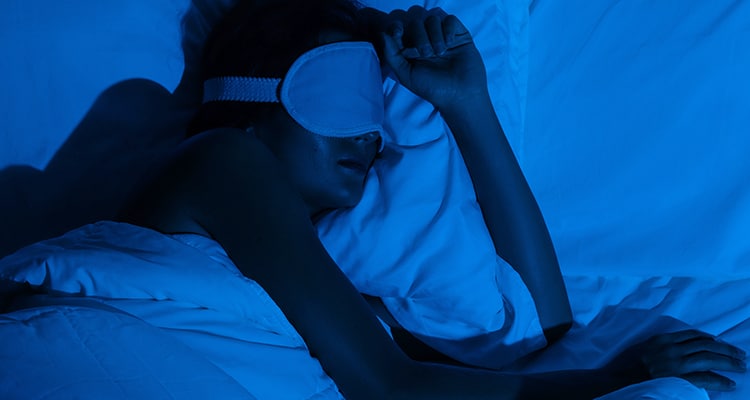Have you been having trouble sleeping lately? Don’t worry. I’m in the same boat as you are. There are many reasons we stay up late, from working a late shift, to binge-watching your favorite show or playing video games.
The problem is, having a messed-up sleep schedule can seriously affect your work productivity and health. These include becoming easily fatigued, gaining more weight, and having memory issues.
If you want to avoid these, fixing your circadian rhythm or your body’s internal 24-hour body clock, should be one of your main concerns. To help you do this, here are some helpful tips to fix your sleep schedule. By following these tips, you will have an easier time resetting your body clock and getting your sleep back.

Form a New Routine.
Despite what some may think, not sleeping for a day won’t just magically reset your body clock back to the way you want it. Being consistent with your sleep and wake-up times is essential to fix your sleep schedule. Yes, this also includes sticking to it even during weekends or off-days.
Doing this conditions your body to this new schedule, so naturally sleeps and wakes up during these times. However, don’t expect this to be a sudden and quick change. It will take time before your body adjusts to these changes, so take it slow. Even something as simple as sleeping 15-30 minutes earlier than you used to is a great start.

Don’t Take Naps in the Afternoon.
Since you already have a messed-up sleep schedule, you may want to skip afternoon naps from now on. This is another mistake I made that has thrown my sleep schedule out of whack. After my work, I would usually take a nap to regain my strength. This would, in turn, cause me to sleep later that night, as my body already thinks it has rested.
That said, if you really must nap, perhaps because your work left you exhausted, try to limit it to just 30 minutes. In addition, try to take your nap before 3 pm, so your night sleep won’t be affected by it.

Try Exercising From Now on.
Another way to fixing your circadian rhythm is by exercising. Exercising helps in your body’s melatonin production, which regulates the body’s day and night cycles and is related to the body’s ability to sleep.
If you’re worried that you won’t have the time to exercise, don’t worry. A 30-minute moderate aerobic exercise is more than enough. You can also incorporate this into your new routine; so you don’t lose your motivation.

Avoid Eating Late and Heavy Meals.
Other than exercising, you should also watch what and when you eat. Eating your dinner late means your body will have to digest it for a while, which prevents you from sleeping. To avoid this, ensure you eat dinner 2-3 hours before sleeping. This is so your body has time to digest them.
In addition to eating early, be mindful of what you eat at night. Eating high-fat meals results in delayed sleep, as these take longer to digest. Eat a light snack instead, like bread, soup, or salad.
Aside from watching what you eat, be careful what you drink too. Avoid drinking coffee and alcoholic beverages: the former is a stimulant, while the latter can disrupt your circadian rhythm.

Limit Your Light Exposure.
Another way to fix your sleep schedule is to limit your exposure to bright lights before sleeping. Exposure to bright lights messes with your circadian rhythm, as your brain won’t produce enough melatonin to make you fall asleep. This means turning off or dimming your bedroom lights and avoiding using your smartphone before sleeping.
Additionally, you may also want to cut back on playing video games before going to bed. Speaking from personal experience, not only is it a source of bright lights, but it can also be a stimulant that can keep you up at night.
On the other hand, exposing yourself to light helps you wake up in the morning. So if you’re having trouble waking up, try to go out and get some fresh air and sunshine.

Make Sure You’re Comfortable in Your Bed.
I think we’ve all experienced being unable to sleep because, somehow, our beds just became uncomfortable to sleep on when we’re trying to sleep. We spend so much time trying to find the right spot and position that before we know it, it’s morning already.
To minimize these from happening, ensure your bedroom’s as comfortable as possible when you sleep. If your mattress and pillows make you uncomfortable, it’s time to buy new ones. This is especially important if you’re waking up stiff and pained everyday. Be sure your room’s temperature isn’t too hot nor cold so you can have a good night’s sleep.

Good Night; Sleep Tight!
Getting a good night’s sleep has been getting more difficult these days. Between the changing demands of work and finding time to do the things you love, it’s almost as if 24 hours is too short nowadays. But getting enough sleep helps you be more prepared for work tomorrow and improve your health in the long run.
Fortunately, there are ways to fix your sleep schedule and reset your body clock. I hope these will help you get some much-needed rest.

